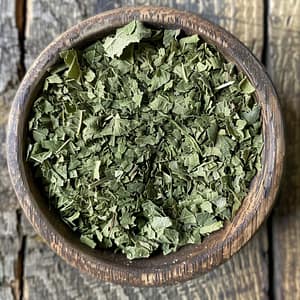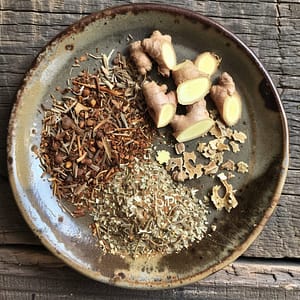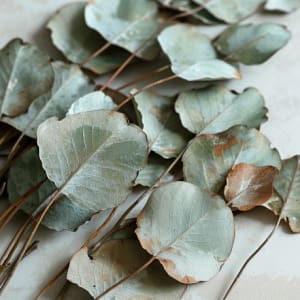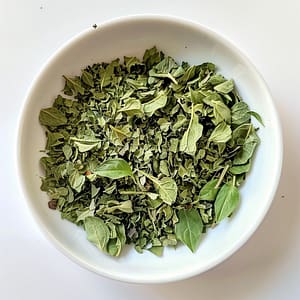
Traditional and commonly used herbs
Pregnancy Tea Recipes
Pregnancy is a transformative time in a woman's life, and many expectant mothers turn to natural remedies to support their health and well-being. Herbal pregnancy teas, cherished across different cultures, offer a gentle and effective way to provide essential nutrients, alleviate common pregnancy discomforts, and promote overall wellness. Each continent has its unique blend of herbs traditionally used to support mothers-to-be, reflecting the rich diversity of natural remedies worldwide. In this article, we will explore the health benefits of drinking pregnancy tea, delve into the properties of the most commonly used herbs, and provide traditional tea recipes from various regions, ensuring you can enjoy a healthier and more comfortable pregnancy journey.
Traditional Pregnancy Tea Recipes from Around the World
North America
Nourishing Pregnancy Tea
- Ingredients:
- 1 part Red Raspberry Leaf
- 1 part Nettle Leaf
- 1 part Alfalfa
- 1 part Peppermint Leaf
- Instructions:
- Mix all herbs in equal parts.
- Use 1 tablespoon of the mixture per cup of boiling water.
- Steep for 10-15 minutes.
- Strain and enjoy.
- Benefits:
- Red Raspberry Leaf: Strengthens the uterine muscles.
- Nettle Leaf: Rich in iron and vitamins.
- Alfalfa: Provides essential vitamins and minerals.
- Peppermint Leaf: Eases nausea and aids digestion.
- Precautions:
- Consult with a healthcare provider before use, especially if you have any underlying health conditions.
- Peppermint should be used in moderation to avoid potential heartburn.
South America
Traditional South American Pregnancy Tea
- Ingredients:
- 1 part Rooibos (commonly available in South America though not native)
- 1 part Lemongrass
- 1 part Chamomile
- Instructions:
- Mix all herbs in equal parts.
- Use 1 tablespoon of the mixture per cup of boiling water.
- Steep for 5-7 minutes.
- Strain and enjoy.
- Benefits:
- Rooibos: Rich in antioxidants and naturally caffeine-free.
- Lemongrass: Helps with digestion and reduces nausea.
- Chamomile: Promotes relaxation and helps with sleep.
- Precautions:
- Chamomile should be avoided if allergic to ragweed.
Europe
European Herbal Pregnancy Blend
- Ingredients:
- 1 part Red Raspberry Leaf
- 1 part Lemon Balm
- 1 part Rosehips
- 1 part Lavender
- Instructions:
- Mix all herbs in equal parts.
- Use 1 tablespoon of the mixture per cup of boiling water.
- Steep for 10-15 minutes.
- Strain and enjoy.
- Benefits:
- Red Raspberry Leaf: Tones the uterus.
- Lemon Balm: Calms the nerves.
- Rosehips: Provides vitamin C.
- Lavender: Promotes relaxation.
- Precautions:
- Consult with a healthcare provider before use.
- Lavender should be used in moderation to avoid overstimulation.
Africa
African Rooibos Pregnancy Tea
- Ingredients:
- 1 part Rooibos
- 1 part Ginger Root
- 1 part Lemon Verbena
- Instructions:
- Mix all herbs in equal parts.
- Use 1 tablespoon of the mixture per cup of boiling water.
- Steep for 5-7 minutes.
- Strain and enjoy.
- Benefits:
- Rooibos: Rich in antioxidants and naturally caffeine-free.
- Ginger Root: Eases nausea and aids digestion.
- Lemon Verbena: Calming and supports digestion.
- Precautions:
- Ginger should be used in moderation to avoid potential heartburn.
- Consult with a healthcare provider before use.
Asia
Traditional Asian Herbal Pregnancy Tea
- Ingredients:
- 1 part Ginger Root
- 1 part Lemon Grass
- 1 part Holy Basil (Tulsi)
- 1 part Jasmine Flowers
- Instructions:
- Mix all herbs in equal parts.
- Use 1 tablespoon of the mixture per cup of boiling water.
- Steep for 5-7 minutes.
- Strain and enjoy.
- Benefits:
- Ginger Root: Eases nausea and aids digestion.
- Lemon Grass: Helps with digestion and reduces nausea.
- Holy Basil (Tulsi): Reduces stress and boosts immunity.
- Jasmine Flowers: Promotes relaxation and helps with sleep.
- Precautions:
- Ginger and lemon grass should be used in moderation.
- Consult with a healthcare provider before use, especially if there are any complications.
Australia
Australian Herbal Pregnancy Tea
- Ingredients:
- 1 part Lemon Myrtle
- 1 part Red Raspberry Leaf
- 1 part Eucalyptus Leaf
- Instructions:
- Mix all herbs in equal parts.
- Use 1 tablespoon of the mixture per cup of boiling water.
- Steep for 10-15 minutes.
- Strain and enjoy.
- Benefits:
- Lemon Myrtle: Rich in antioxidants and aids digestion.
- Red Raspberry Leaf: Strengthens the uterine muscles.
- Eucalyptus Leaf: Helps with respiratory health.
- Precautions:
- Eucalyptus should be used in moderation and not consumed in large amounts.
- Consult with a healthcare provider before use.
General Precautions
- Always consult with a healthcare provider before using herbal teas during pregnancy.
- Use herbs in moderation to avoid any potential adverse effects.
- Be aware of any allergies to specific herbs.
These recipes are designed to reflect traditional and commonly used herbs in each region, supporting the health and well-being of both mother and baby during pregnancy.
Common Herbs in Pregnancy Teas and Their Benefits
Red Raspberry Leaf
- Benefits: Known for its ability to strengthen the uterine muscles, red raspberry leaf can help prepare the body for labor and delivery. It is also rich in vitamins and minerals, such as iron, calcium, and magnesium, which are essential during pregnancy.
- Precautions: Generally safe, but it's best to consult with a healthcare provider before use, especially in early pregnancy.
Nettle Leaf
- Benefits: Nettle leaf is a powerhouse of nutrients, including iron, calcium, and vitamins A, C, and K. It supports overall health, boosts energy levels, and helps prevent anemia.
- Precautions: Should be consumed in moderation, especially in the first trimester.
Peppermint Leaf
- Benefits: Peppermint is excellent for easing nausea, morning sickness, and digestive issues. Its refreshing taste can also provide a soothing effect on the stomach.
- Precautions: Excessive use can cause heartburn; best used in moderation.
Ginger Root
- Benefits: Ginger is well-known for its ability to combat nausea and morning sickness. It also aids digestion and has anti-inflammatory properties.
- Precautions: Should be used in moderation to avoid gastrointestinal discomfort.
Lemon Balm
- Benefits: Lemon balm has calming effects, which can help reduce anxiety and promote relaxation. It is also useful for digestive issues.
- Precautions: Generally considered safe, but consultation with a healthcare provider is recommended.
Chamomile
- Benefits: Chamomile is a gentle herb that promotes relaxation and helps with sleep. It also has anti-inflammatory and digestive benefits.
- Precautions: Should be avoided if allergic to ragweed.
Rosehips
- Benefits: Rosehips are rich in vitamin C, which supports the immune system and overall health. They also have anti-inflammatory properties.
- Precautions: Generally safe, but moderation is key.
Lavender
- Benefits: Lavender is known for its relaxing and calming properties. It can help alleviate stress and promote restful sleep.
- Precautions: Should be used in small amounts to avoid overstimulation.
Holy Basil (Tulsi)
- Benefits: Tulsi is an adaptogen that helps reduce stress, boost immunity, and support overall well-being. It also has anti-inflammatory properties.
- Precautions: Generally safe, but should be used under the guidance of a healthcare provider.
Jasmine Flowers
- Benefits: Jasmine flowers promote relaxation and help improve mood. They also add a pleasant aroma and flavor to tea blends.
- Precautions: Safe in moderate amounts, but consultation with a healthcare provider is recommended.
Lemon Grass
- Benefits: Lemon grass aids digestion, reduces nausea, and has calming effects. It is also rich in antioxidants.
- Precautions: Should be used in moderation to avoid potential gastrointestinal issues.
Lemon Myrtle
- Benefits: Lemon myrtle is rich in antioxidants and has anti-inflammatory properties. It also aids digestion and provides a refreshing flavor.
- Precautions: Generally safe, but should be consumed in moderation.
Eucalyptus Leaf
- Benefits: Eucalyptus helps with respiratory health and has anti-inflammatory and antimicrobial properties.
- Precautions: Should be used in small amounts and not consumed in large quantities.
Comprehensive Guides and Recipes
For those interested in making their own pregnancy teas, several books offer detailed recipes and guidelines:
- "The Natural Pregnancy Book" by Aviva Jill Romm
- "Herbal Healing for Women" by Rosemary Gladstar
- "Wise Woman Herbal for the Childbearing Year" by Susun S. Weed
- "Nurturing Traditions: A Cookbook for the Childbearing Years" by Diane West and Candace Kunst
- "The Herbal Medicine-Maker's Handbook" by James Green




